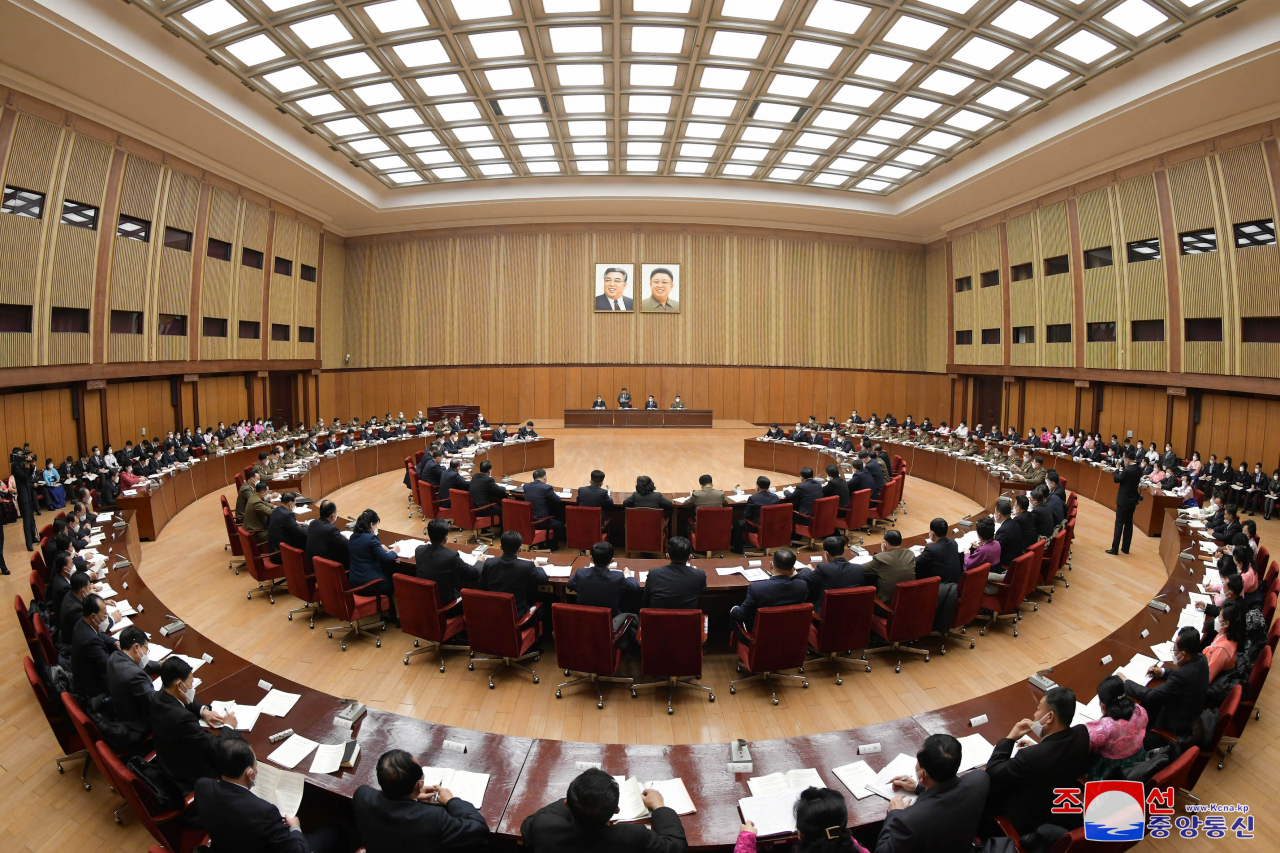 |
North Korea convenes the 8th session of the 14th Supreme People's Assembly in Pyongyang, in this photo released by the North's official Korean Central News Agency on Thursday. The KCNA said the two-day meeting wrapped up the previous day. (KCNA) |
North Korea has convened a two-day parliamentary session in Pyongyang to discuss budgetary and other issues, including legislation against foreign cultural influences, its state media said Thursday.
Without its leader in attendance, the North held the 8th session of the 14th Supreme People's Assembly on Tuesday and Wednesday, according to the official Korean Central News Agency. No messages by Kim Jong-un were issued in public in regard to South Korea or the United States.
The SPA is the highest organ of power under the North's constitution, although it rubber-stamps decisions by the ruling Workers' Party of Korea.
The parliamentary session had drawn keen attention from the outside world as a possible stage for Kim to send messages targeting the South or the US, or announce the country's development of nuclear and other major weapons.
This week's session, instead, focused on domestic issues, such as reviewing the state budget, organizational issues and adopting a law on the "protection of the cultured Pyongyang dialect."
The new law points to the need for "the development of socialist national culture to protect and actively preserve" the language," Kang Yun-sok, vice chair of the SPA standing committee, was quoted as saying by the KCNA in an English-language dispatch.
The adoption of such legislation appears aimed at tightening state control over the inflow of outside culture by regulating the use of South Korean styles of speech, observers said.
On budgetary issues, the North decided at the SPA meeting to increase the overall state expenditure by 1.7 percent on-year in 2023, without mentioning the size of the total budget. It will also raise spending on the economic sector by 1.2 percent on-year.
Spending on the defense sector will account for 15.9 percent of the total budget this year, the same proportion of last year. The country also decided to allocate 45 percent of its 2023 budget in developing its economy and improving people's livelihood, it added.
The reclusive country's economy has been faltering under global sanctions and the prolonged COVID-19 pandemic.
The North's leader has vowed to bolster the country's defense capabilities this year, ordering an exponential increase in nuclear warheads and the development of an advanced weapon system.
During the parliamentary meeting, the North pointed to "not a few shortcomings" founded in carrying out last year's budget and urged efforts to push ahead with the country's five-year economic plan.
Premier Kim Tok-hun stressed the state budget for this year "should be implemented without fail to financially support the work for bolstering up the country's defense capability, developing the economy and improving the people's standard of living," according to the KCNA.
Meanwhile, Maeng Kyong-il, director of the Secretariat and presidium member of the Central Committee of the Democratic Front for the Reunification of Korea, was by-elected vice chair of the SPA.
Maeng is known to have played a key role in improving cross-border ties with the South on the occasion of the 2018 PyeongChang Winter Olympics, to which the North sent athletes. (Yonhap)







